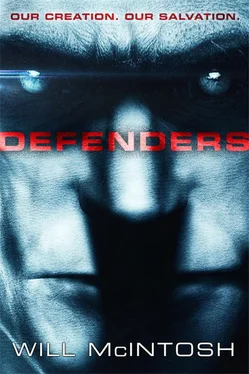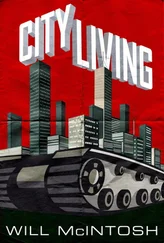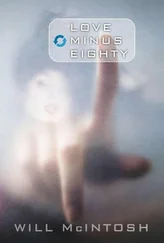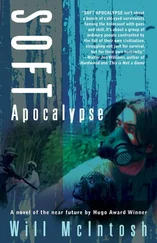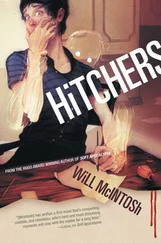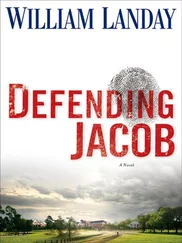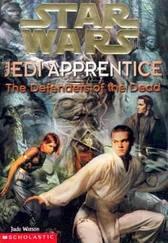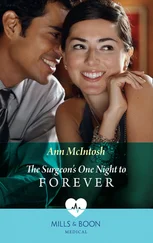“They have less regard for life than we do, I don’t disagree,” Oliver said, “but ‘insane’ implies their thinking and behavior is incoherent. I have to disagree.”
“They’re insane,” Azumi repeated.
“Poor Bolibar,” Galatea whispered.
“Let’s set their mental state aside for now,” Sook said. “We have to decide what to do.”
The red light blinked, turned green.
“We should demand they lift the cloak so we can contact our governments,” Galatea said.
“We should leave ,” Azumi said. “This is a madhouse .”
Lila shushed him. Half a dozen defenders were trailing behind them.
Azumi lowered his voice. “They kill like it was nothing.” He gestured toward a Luyten operating a bulldozer on a construction site they were passing. “Starfish everywhere. And this ‘special friend’ nonsense. I have a wife; I don’t need a brigadier general defender at my side every minute of the day.”
“We can’t leave yet,” Lila said. “Even if it’s dangerous, we have to know what we’re dealing with, why the defenders invited us here.”
“I agree,” Oliver said.
Azumi sighed theatrically. “Fine. Then let’s demand we get down to business. We’re here on a diplomatic mission, so let us proceed with the diplomacy. No more plays. No more special friends. I’m telling General Baxter I’m not available for any more films, or lunches, or cocktail parties.”
“You’re breaking up with General Baxter?” Galatea asked, in mock shock. Everyone burst out laughing.
“ Yes ,” Azumi said, “I’m breaking up with him.”
Lila didn’t have the heart to do the same with Erik. In any case, she wasn’t sure she wanted to. His violent nature disturbed her, but hadn’t they made him that way? The human race was alive because Erik and the other defenders killed so efficiently, without fear. All humans bore some of the responsibility for that. In some real sense, the defenders were the blameless ones; they were simply expressing what they’d been engineered to be.
The question was, since there was now no need for killing, could the defenders extinguish their violent instincts, or channel them into socially appropriate behavior? There was no alternative, really, unless the defenders decided to stay isolated. Lila thought they could do it, given time and guidance.
“Let’s not forget, they have positive qualities,” Lila said.
Sook laughed harshly. “Were you just in there?”
Lila ignored her. “This special-friend thing is a good sign. They crave close relationships, especially with humans.” She glanced at Sook. “Yes, I was in there, but what about them ?” She gestured toward the defenders following. “Most of the defenders adore us.”
“I don’t think it’s a good idea to encourage these close relationships.” Azumi made a chopping gesture. “We should keep our relationship with the defenders strictly professional.”
Up ahead, a Luyten was loading a delivery truck with pallets of oversized milk cartons. It was crimson, on the small side. Lila slowed, studied it as they passed.
She couldn’t be sure.
“Are you all right, Lila?” Azumi asked.
Her heart was pounding. She wanted to ask the Luyten if she was right, if it was the one, but there was no point. It knew she was asking, and it chose to stay silent.
She continued past it. Had it shown itself to her on purpose? If it was the Luyten who’d killed her father, wouldn’t it go out of its way to avoid her? Maybe it wasn’t the same one. There were millions of Luyten, and even if the crimson ones were rare, there still must be thousands of them.
May 27, 2045. Sydney, Australia.
Lila couldn’t reach the doorbell. She considered taking it as a sign to leave while she still could, but hope and fear drove her to keep this dinner date. The hope was that Azumi and Sook were wrong, that the defenders were, at their core, human. The fear was that Erik might get angry if she didn’t show. Lila was afraid of them. All of them, even Erik. She couldn’t deny that. But unlike Azumi and Sook, she saw good in them as well. It was incumbent on her—on all of them—to get to know these creatures, to understand what they were capable of, not only when they were at their worst, but when they were at their best, too.
Having convinced herself to go through with it, Lila knocked. The heavy door hurt her knuckles and made almost no sound. She pounded the door with the side of her fist. That produced a tiny thump.
Footsteps approached the door from the inside; it swung open.
“Please come in and admire my home.” Erik held the door open for her.
It was a modern-looking house, sparsely furnished save for the walls, which were covered with enormous paintings that Lila had no doubt were Erik’s work.
Erik led her into the dining room, which was dominated by a simple but solid rectangular table and four chairs. Erik helped her into her seat as a Luyten approached holding a bottle of wine.
“I’m sorry I don’t have a smaller glass. I should have asked you to bring one from your hotel room.”
“Don’t worry about it, it’s fine.” It was a fishbowl. The Luyten filled it a quarter of the way.
She considered the painting closest to her. It was a portrait of a defender’s face floating on an otherwise empty canvas. “Are you part of an art community? Do you talk technique with other artists, share ideas and such?”
Erik seemed perplexed. “If I share what I know with other painters, they’ll improve, weakening the quality of my work by comparison.”
Lila wasn’t sure how to respond. It wasn’t surprising, really, that they saw the creation of art as a competition. And really, how far off was that from how humans thought of art? Erik was saying it aloud, but how many human artists thought the same way?
The steak the Luyten set in front of Lila was absurdly large. It was far smaller than the piece it served Erik, but still, it must have weighed six pounds. It was cut into pieces, probably to match Erik’s, since he would have trouble handling a knife. Handling a knife for the purpose of carving his dinner, anyway.
“I’m so sorry about your associate, Bolibar,” Erik said. “It was uncalled for, what happened.”
“Thank you. It’s such a shock.” Lila had been avoiding the topic, waiting for Erik to broach it. She put down her utensils for a moment. “You know what was especially tragic? It was all a misunderstanding. Bolibar wasn’t laughing at that actor; he was laughing about something completely unrelated to the performance.”
“That is a shame.” Erik was making quick work of his beef. He chewed each enormous bite once, maybe twice before swallowing it and taking another. “So many killings seem to arise out of misunderstandings.”
Lila smiled, nodded politely.
“Did you see me fight, though?” Erik asked, his eyes lighting up. “Maybe you couldn’t see because there were so many defenders on the stage.” He pointed his fork at his chest. “But I’m the one who killed him.”
She had decided to leave the wine rather than risk spilling it all over her blouse, but now she lifted the glass with both hands and took a swig. It was quite good—peppery, sharp, with a hint of licorice.
“Who makes the wine?” Lila asked.
Erik shrugged. “Charles. He took over an existing vineyard north of the city.”
“It’s really good.”
“Is it?” Erik took a drink. “Charles’s is the only wine I’ve ever tasted, so I have nothing to compare it to.”
“If the defenders negotiate trade deals, I’m sure a lot of human wineries would be eager for a chance at the defender market.”
Читать дальше
